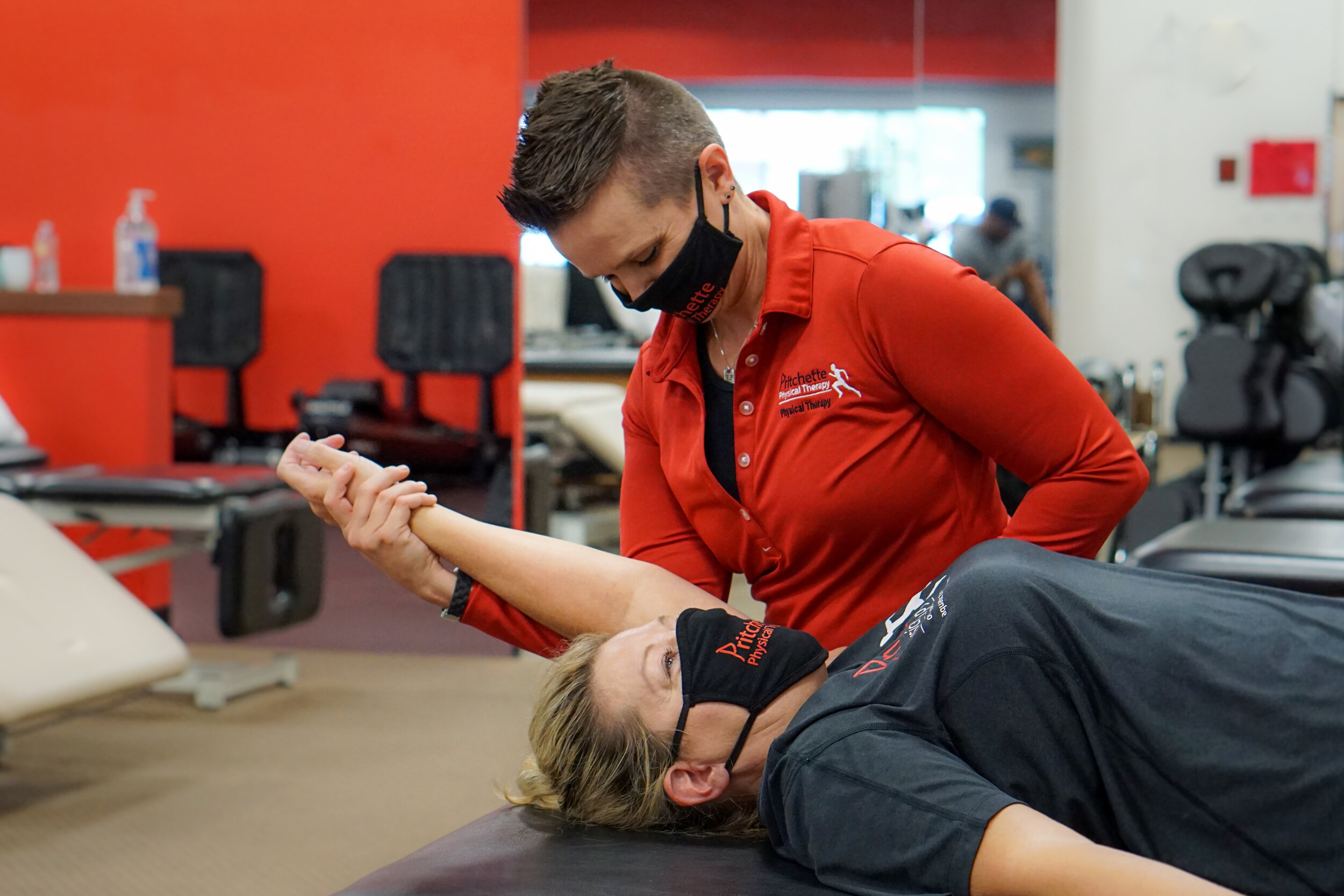Shoulder impingement syndrome is an umbrella term used to describe a pinching, or an impingement, of the rotator cuff tendons (typically the supraspinatus) or the biceps tendon in your shoulder. This impingement can be caused by a variety of factors including posture, muscular imbalances, rotator cuff insufficiency, joint instability, decreased range of motion in your shoulder or thoracic spine, arthritic changes, or trauma. Determining the cause of the impingement is vital to a successful rehabilitation.
If you feel along the top of your shoulder, you will feel a hard bump. This is a hook-shaped bone called the acromion. Under the acromion is a small amount of space that allows you to raise your arm overhead without compressing the tendons of the rotator cuff against it. When there is inflammation in the shoulder, that small joint space becomes diminished, resulting in a pinching, or an impingement, of with activities such as raising your arm overhead, reaching across your body, lying on the painful shoulder, or reaching behind your back.
How does Physical Therapy Help?
To treat shoulder impingement syndrome, it is first imperative to identify the cause. Your physical therapist will take you through a series of tests to rule out more significant concerns such as rotator cuff tears or labral tears, and to best determine what structures are inflamed and being ‘pinched’. A plan of care will then be prescribed to decrease pain and inflammation, restore joint mobility and improve the biomechanics of the shoulder. Impingement that goes untreated can result in progressive injury such as rotator cuff tears, worsening of an existing rotator cuff tear, or bony changes as a result of increased contact between the arm bone (humerus) and the acromion. For this reason, it is very important to seek early medical intervention!
Contact either our Ahwatukee or Ahwatukee Foothills location at 480-785-5415 to schedule an appointment to see if your shoulder pain is related to shoulder impingement syndrome.

